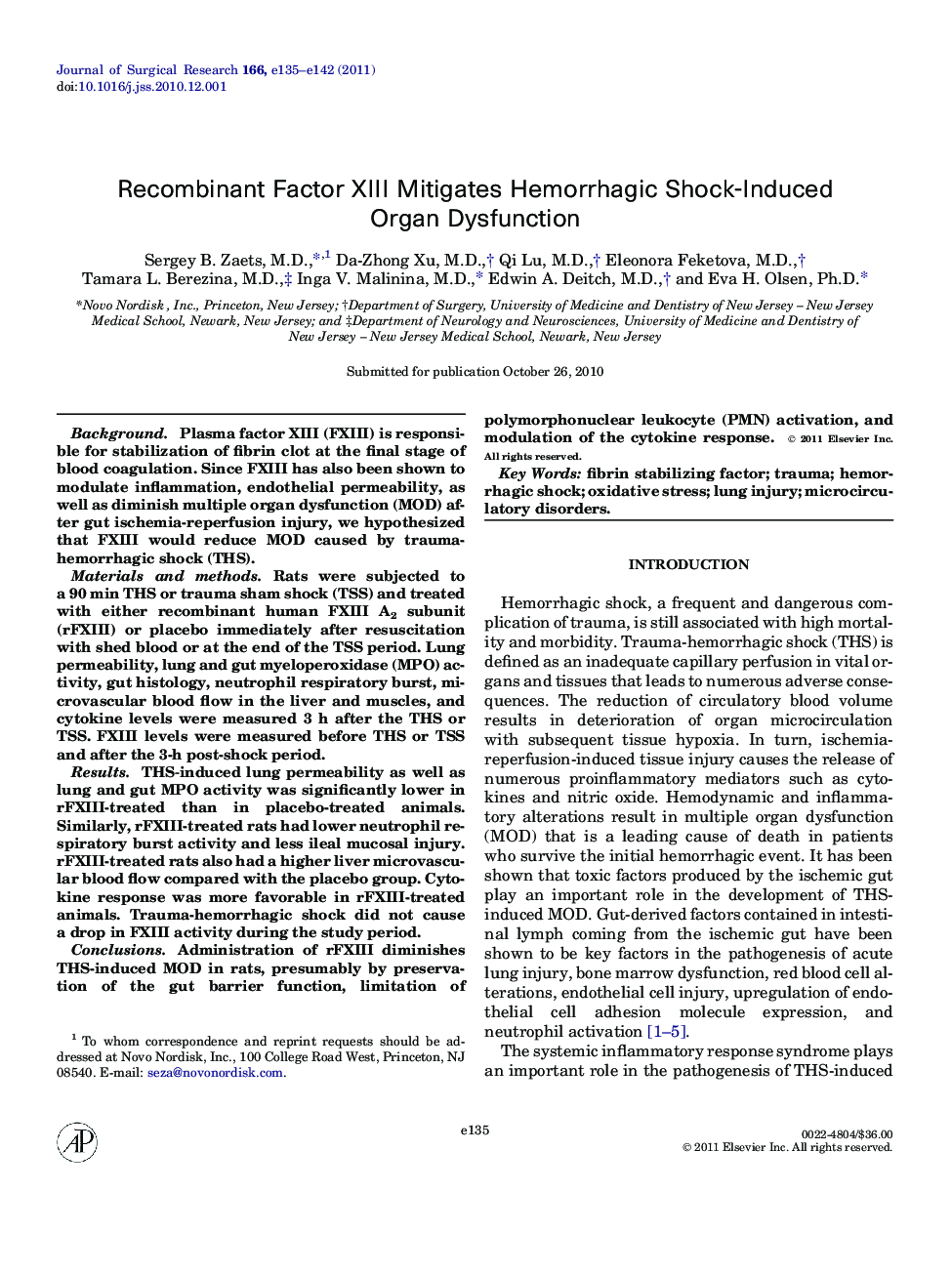| Article ID | Journal | Published Year | Pages | File Type |
|---|---|---|---|---|
| 4302987 | Journal of Surgical Research | 2011 | 8 Pages |
BackgroundPlasma factor XIII (FXIII) is responsible for stabilization of fibrin clot at the final stage of blood coagulation. Since FXIII has also been shown to modulate inflammation, endothelial permeability, as well as diminish multiple organ dysfunction (MOD) after gut ischemia-reperfusion injury, we hypothesized that FXIII would reduce MOD caused by trauma-hemorrhagic shock (THS).Materials and methodsRats were subjected to a 90 min THS or trauma sham shock (TSS) and treated with either recombinant human FXIII A2 subunit (rFXIII) or placebo immediately after resuscitation with shed blood or at the end of the TSS period. Lung permeability, lung and gut myeloperoxidase (MPO) activity, gut histology, neutrophil respiratory burst, microvascular blood flow in the liver and muscles, and cytokine levels were measured 3 h after the THS or TSS. FXIII levels were measured before THS or TSS and after the 3-h post-shock period.ResultsTHS‑induced lung permeability as well as lung and gut MPO activity was significantly lower in rFXIII-treated than in placebo-treated animals. Similarly, rFXIII-treated rats had lower neutrophil respiratory burst activity and less ileal mucosal injury. rFXIII-treated rats also had a higher liver microvascular blood flow compared with the placebo group. Cytokine response was more favorable in rFXIII-treated animals. Trauma-hemorrhagic shock did not cause a drop in FXIII activity during the study period.ConclusionsAdministration of rFXIII diminishes THS-induced MOD in rats, presumably by preservation of the gut barrier function, limitation of polymorphonuclear leukocyte (PMN) activation, and modulation of the cytokine response.
